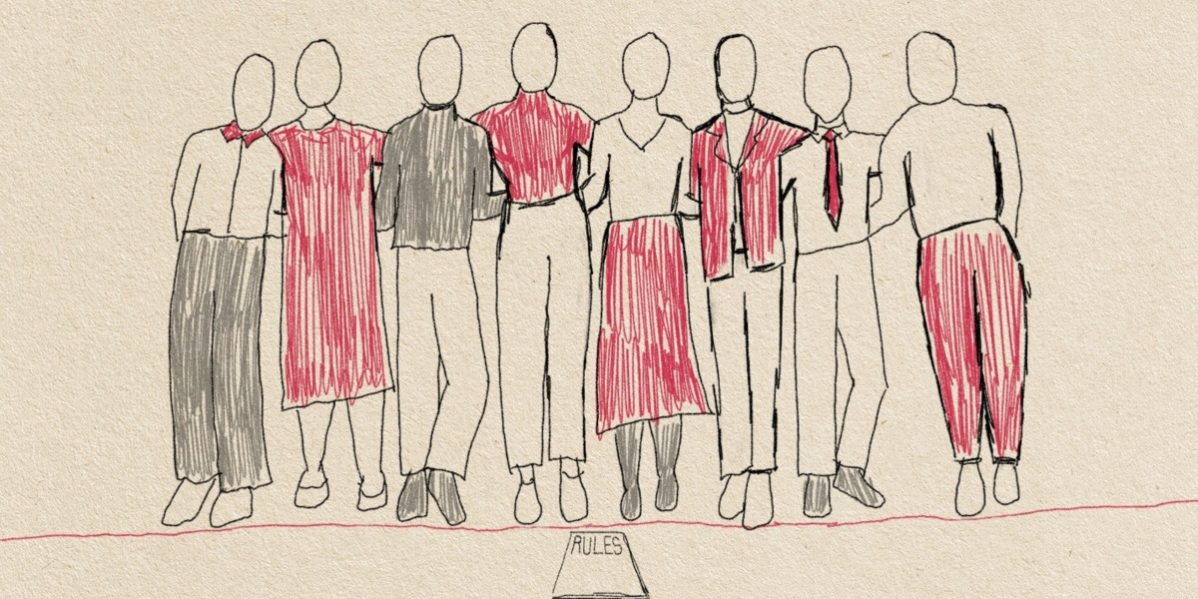Illustration by Katie Doyle
As of January 3, college faculty have entered into the second phase of their labour action campaign, which will focus on a work-to-rule push. According to Jeff Brown, acting chief steward at OPSEU Local 556 and professor at George Brown, this event will be the first of its kind in the college sector.
Over the course of the last year, the bargaining team representing faculty, CAAT-A, and college employers have been unable to agree on terms for a new collective agreement. Negotiations were drawn out and tensions gradually escalated until the CEC rejected arbitration, resulting in the apparent need for job action.
The decision to implement work-to-rule follows a union vote that occurred in early December before the winter break, where just under 60 per cent of staff voted in favour of challenging the CEC.
Given that the voting period was just before the holidays, OPSEU-O decided to begin the campaign with Phase 1, which focused on bringing awareness on the need for action to members and increasing support for the next phase through informational meetings and e-mails.
In light of this recent news, the Dialog covers what work-to-rule will mean for GBC.
What is work-to-rule?
Work-to-rule is a form of labour action that implores staff to work according to the minimum job duties laid out in their contracts and work assignments – nothing more, nothing less. In essence, any activities that staff are not paid for are to be avoided during the period of job action.
The goal is to minimize staff productivity, which will spotlight the consequences for college employers that come with failing to produce an agreement that addresses the concerns of the union.
Work-to-rule is meant to target administration first and foremost, and is considered to be far less disruptive for students than pursuing a strike or a lockout.
Will students be affected?
It is possible that students can be impacted depending on their individual program, course of study and college staff.
Work-to-rule could mean instructors will be participating in anything from limiting teaching hours, preparation time, evaluation and feedback time, as well as time available to students. Activities that are not required such as extracurriculars, workshops, meetings or recruitment fairs are not mandatory, and as such instructors may avoid these tasks as well.
Prior to the beginning of this semester, staff were encouraged not to prepare for the next semester in any form, whether it be orientation or department meetings.
However, faculty recognize the burden on students and are committed to putting their needs first throughout this process. “The clear directive for the work-to-rule campaign is to focus on students and their learning, and to stop doing all the work we as faculty do for free that basically helps administration manage the college,” Brown wrote in communication with the Dialog.
The bargaining team has also made an effort to inform students of the future, long-term benefits of work-to-rule despite the possible disruption.
Should students support the campaign?
CAAT-A has issued statements motivating students to learn more about each party’s perspective, as the resulting collective agreement will have a dramatic effect on how college faculty will be able to support students.
Current issues at stake include, for example, staff advocating for more time to grade submissions and prepare for classes, which could potentially result in more detailed feedback and effective teaching.
“Student support is key right now, since theirs is the most important voice in the college community,” Brown wrote.
The CEC, on the other hand, has asked faculty to refrain from involving students in the labour dispute, as they believe that doing so would be too disruptive to their education.
Students are not required to engage in the bargaining matter, but it is an option available to them should they desire it.


